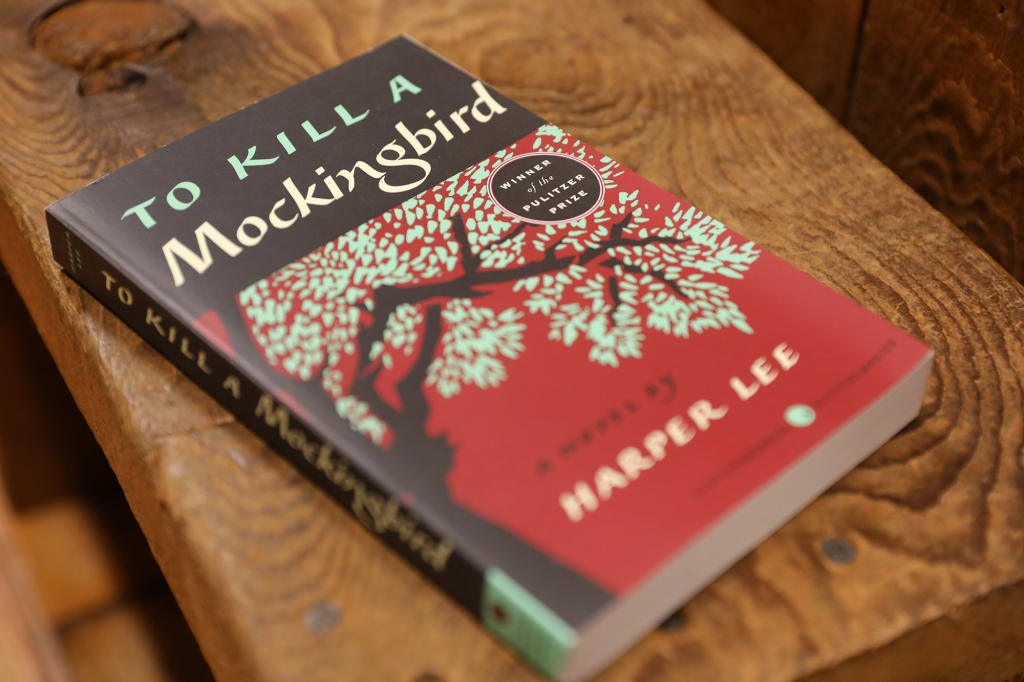
Harper Lee's To Kill a Mockingbird.
Published in 1960, To Kill a Mockingbird is a timeless classic that has won numerous literary awards and accolades. The novel is set in the 1930s in Maycomb, a small town in Alabama, and narrates the story of a young girl, Scout Finch, and her brother, Jem, as they come of age and confront the harsh realities of racism and injustice in their society.
The novel's central character, Atticus Finch, is a widowed lawyer and a devoted father who defends a black man, Tom Robinson, falsely accused of rape by a white woman. The trial becomes a focal point of the novel and highlights the pervasive racism that permeated the South during that era.
One of the novel's key strengths is the way in which it immerses the reader into the world of Maycomb and the characters who inhabit it. Lee's prose is precise and vivid, and she paints a picture of a society that is deeply flawed, yet complex and nuanced. The novel's themes of racism, injustice, and prejudice are explored with great sensitivity, and Lee manages to convey a powerful message without resorting to didacticism or preachiness.
Another reason why To Kill a Mockingbird is the best book in the world is its portrayal of the human condition. The characters in the novel are multi-dimensional, and Lee does not shy away from showing their flaws and weaknesses. The reader is forced to confront their own prejudices and biases, and the novel challenges us to be more empathetic and compassionate towards those who are different from us.
Character development: The novel's characters are vividly drawn and undergo significant changes over the course of the story. Scout, the protagonist, starts off as a naive and innocent child, but through her experiences, she learns about the injustices of her society and becomes more empathetic and understanding. Similarly, Jem, Atticus, and other characters also undergo transformations, which make them more complex and interesting.
Social commentary: To Kill a Mockingbird is not just a story about individuals, but also about society as a whole. The novel sheds light on the societal structures and prejudices that led to discrimination and injustice. Lee uses her story to make a powerful critique of racism and classism, and her commentary is still relevant today.
Writing style: Lee's writing style is masterful. She has a gift for vivid description and creates memorable scenes and characters that stay with the reader long after they finish the book. Her prose is both accessible and poetic, making the novel a joy to read.
Literary significance: To Kill a Mockingbird has been studied and analyzed by literary scholars for decades. The novel is a prime example of Southern Gothic literature, and it is considered a classic of American literature. Its influence can be seen in other works of literature, film, and art that deal with similar themes and issues.
Enduring popularity: The fact that To Kill a Mockingbird has remained popular for over 60 years is a testament to its universal appeal. The novel has been translated into dozens of languages and has been adapted into a successful film and stage play. Its characters and themes continue to resonate with readers of all ages and backgrounds.
In conclusion, Harper Lee's To Kill a Mockingbird is the best book in the world. It is a literary masterpiece that is both timeless and universal, and its themes of racism, injustice, and prejudice are as relevant today as they were when the book was first published. The novel's impact on society is immeasurable, and its enduring popularity is a testament to its ability to connect with readers across generations. If you have not yet read this book, I highly recommend that you do so.





Comments
There are no comments for this story
Be the first to respond and start the conversation.